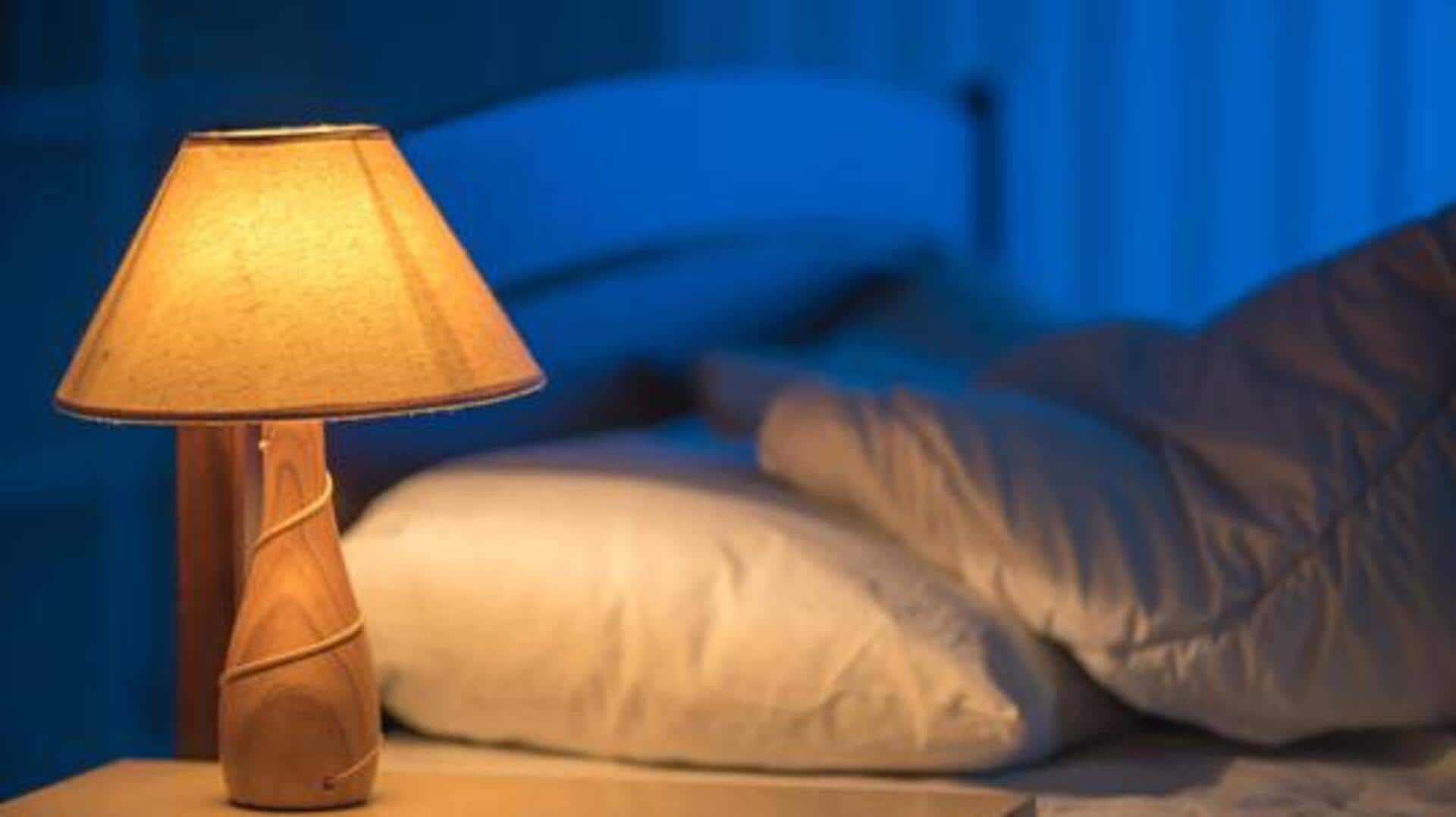
5 ways to create a calming bedtime routine
What's the story
Establishing a calming bedtime routine can do wonders for your sleep quality and overall well-being. A consistent routine signals the body that it's time to wind down, promoting relaxation and reducing stress. By incorporating these simple practices into your nightly schedule, you can create an environment conducive to restful sleep. Here are five practical tips to help you develop a soothing bedtime routine that encourages better sleep and enhances your nightly rest.
Regular timing
Set a consistent sleep schedule
Sticking to a fixed bedtime and wake-up time every day regulates your body's clock, making it easier to fall asleep and wake up naturally. Aim for seven to nine hours of sleep, adjusting as needed for plenty of rest. This habit gradually improves sleep quality and increases daytime energy levels.
Digital detox
Limit screen time before bed
Exposure to screens before bed can affect your ability to fall asleep due to the blue light emitted by phones, tablets, and computers. This light suppresses melatonin production, making it difficult for you to feel sleepy. Try turning off electronic devices at least one hour before bedtime or use blue light filters if necessary. Instead of screen time, consider reading a book or listening to calming music.
Soothing space
Create a relaxing environment
Your bedroom should be a sanctuary for sleep and relaxation. Keep the room cool, quiet, and conducive to sleep by using blackout curtains or an eye mask if necessary. Consider using earplugs or white noise machines if outside sounds are disruptive. Further, ensure that your mattress and pillows provide adequate support for comfort throughout the night.
Calm mindset
Practice relaxation techniques
Incorporating relaxation techniques into your bedtime routine can help ease tension and prepare your mind for sleep. Practices such as deep breathing exercises, meditation, or gentle yoga stretches promote relaxation by reducing stress levels before bed. Experiment with different techniques until you find what works best for you in creating a peaceful transition from wakefulness to sleep.
Caffeine awareness
Avoid caffeine late in the day
Caffeine is a stimulant that can interfere with sleep patterns, especially if consumed too late in the day. To prevent its impact on your ability to fall asleep easily at night, restrict caffeine consumption after mid-afternoon hours around 2 p.m. Opt for herbal teas or decaffeinated drinks in the evening when you're craving something warm before bed.